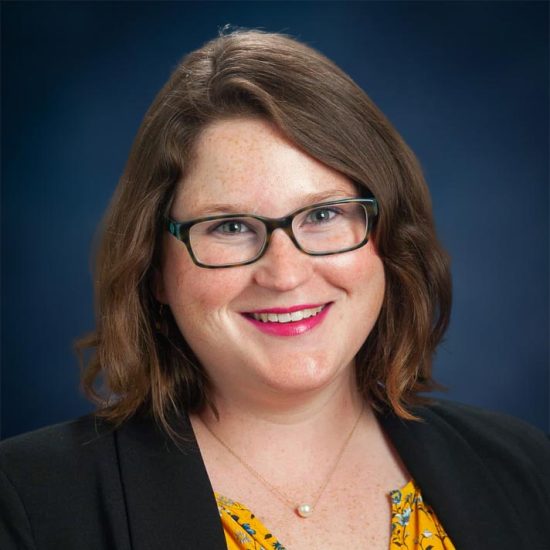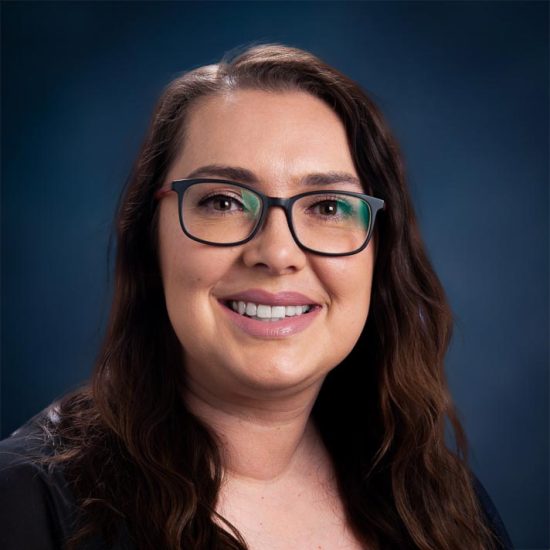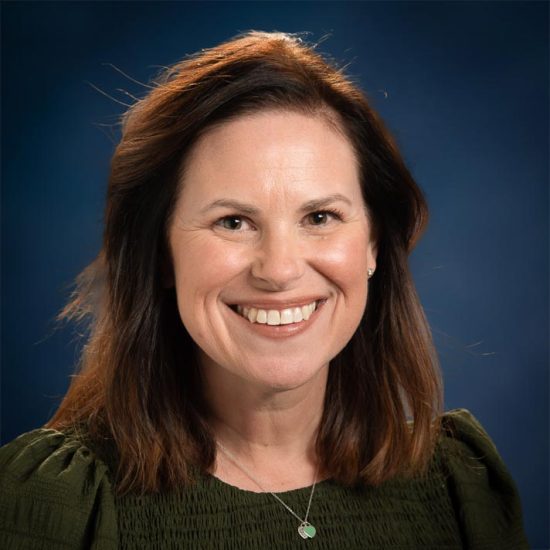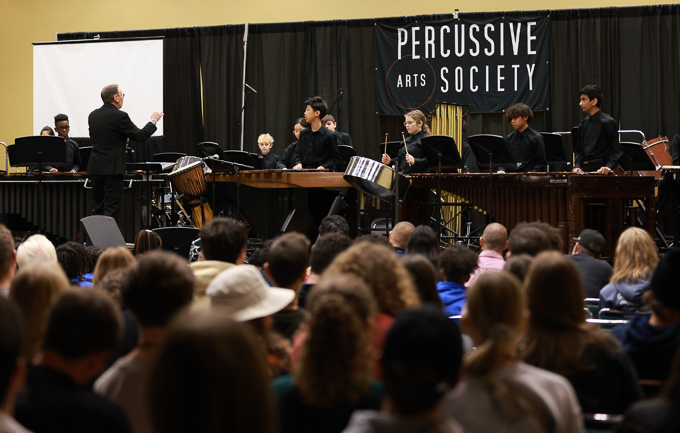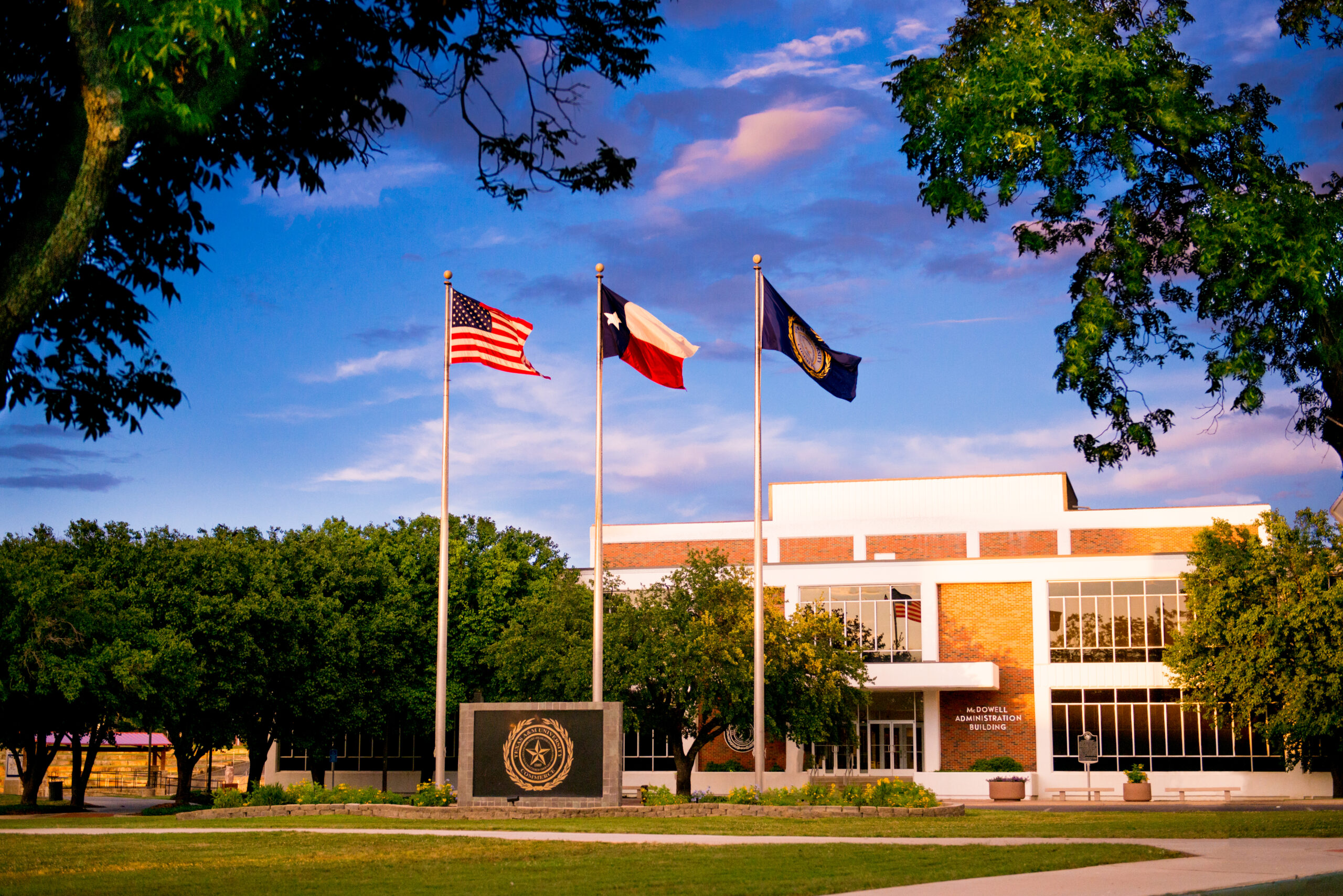
Office of Institutional Effectiveness
Improving Our University
You are here to advance your future. We’re here to make sure that happens.
Our Mission
Institutional Effectiveness serves to advance A&M-Commerce's mission, vision and effectiveness by facilitating integrated strategic planning, assessment and reporting to support data-informed decision making, policy formation, academic program development, accreditation efforts and continuous improvement at the university.

Assessment
A&M-Commerce identifies expected outcomes, assesses the extent to which it achieves these outcomes and provides evidence of seeking improvement based on analysis of the results for each of its educational programs and support units. These assessment practices are overseen through a university-wide institutional effectiveness process governed by university procedure 03.01.99.R0.03 Institutional Effectiveness and directed by the Department of Institutional Effectiveness and Research in conjunction with the Institutional Effectiveness Leadership Team, which includes representatives from every college and division of A&M-Commerce.
IE Assessment Training Presentations
- Intro to Assessment Planning-Slides
- Intro to Assessment Reporting-Slides
- Intro to Assessment Reporting-Training Video
IE Assessment Resources
- Assessment Methods for Academic Programs
- Assessment Methods for Support Units
- Writing Goals for Support Units
- Writing Student Learning Outcomes for Academic Programs
- Strategic Planning at A&M-Commerce
- The Institutional Effectiveness Process at A&M-Commerce
- Definitions of Assessment Method Types
- Glossary of Assessment Terms
- Academic Program Assessment Review Rubric
- Support Unit Assessment Review Rubric
- Support Unit Taxonomy of Goals
Curriculum Mapping
- Association of American Colleges & Universities – Rubric
- Association of American Colleges & Universities
- National Institute for Learning Outcomes Assessment
- Council for the Advancement of Standards in Higher Education
- NASPA, Student Affairs Administration in Higher Education
- National Academic Advising Association
- Student Affairs Assessment Leaders
- Assessment Brief- Making assessment meaningful: What new student affairs professionals and those new to assessment need to know (Bresciani, M.J.)
- Article – “All assessment is interesting” (Linda Suskie)
Nuventive™ Improvement Platform
To begin, log in to the Nuventive Improvement Platform. The platform can also be accessed through the applications tab in myLEO. If you have questions regarding the Nuventive Improvement Platform or assessment, please view the information and resources below or contact Institutional Effectiveness.
Deadlines
- September 1: IE Authors must submit all 23-24 IE Reports.
- September 15: Direct Supervisors, Department Heads and IE Representatives must complete their review and approval of all 23-24 IE Reports.
- September 29: Deans, VPs and all final IE reviewers must review and approve all 23-24 IE Reports.
- Completing Your 23-24 Annual IE Report within Nuventive (Combined Checklist and Instructions)
- User Manual – Nuventive Improvement Platform
- Reviewer Manual – Nuventive Improvement Platform
- Utilizing the Nuventive Improvement Platform for Annual Assessment
- Logging In and Basic Navigation
- Adding and Editing SLOs and Goals
- Adding and Editing Assessment Methods
- Adding and Editing Assessment Results plus Basic Results Information
- Mapping SLOs and Goals
- Generating Assessment Reports
- Accessing and Using the Document Library
- Editing and Adding SLOs or Goals Snapshot Video
- Entering and Editing Assessment Methods Snapshot Video
- Entering Assessment Results Snapshot Video
- Entering and Editing Action/Use of Results Snapshot Video
- Locating Rubric Feedback and Revisions Snapshot Video
Events
- Presentation – Communicating Your Story with Institutional Effectiveness Processes
- Presentation – Program and Curriculum Mapping Presentation – 2018 Professional Development Day
- Presentation – Writing Student Learning Outcomes for Support Unit Assessment
- Presentation – Writing Student Learning Outcomes for Academic Program Assessment
- Presentation – Writing Goals for Support Unit Assessment
- Quality Day 2022 Agenda and Highlights
- Quality Day 2022 Keynote by Elizabeth Vogt on Accreditation: Quality Assurance through Peer Review
- Quality Day 2022 Strategic Plan Assessment Committee Panel Discussion
- Elizabeth Vogt: Avoiding Pitfalls with Sections 6 & 8 for Reaffirmation
- Dr. Eric Branscome: The Accessible Assessment Enigma
- Alison Soeder: Using Assessment Results for Improvement
- Quality Day 2019 Agenda and Highlights
- Quality Day 2019 Evaluations
- Anne Phifer and Dr. Jessica Pauszek: Finding Functional Feedback in Course Evaluation Data
- Dr Jennifer Dyer, Dr. Juan Araujo and Dr. Laura Isbell: Curriculum Mapping for Academic Programs
- Dr. Dan Su and Jeremy Anderson: TAMUC Alumni Survey Findings (2018-2019)
- Dr. Derald Harp and Dr. Megan Owen: Assessing Teamwork
- Jennifer Hudson: Designing an Assessment Plan You Can Live With and Learn From
- Mary Cheek: Goal Mapping for Support Units
- Quality Day 2017 Agenda and Highlights
- Quality Day 2017 Evaluations
- Dr. Ray Green and Dr. Dan Su: Why Aren’t They Coming Back Presentation (Presentation unavailable)
- Dr. Madeline Justice and Jeremy Gamez: Quality Assurance Presentation (Presentation unavailable)
- Dr. Madeline Justice and Jeremy Gamez: Quality Matters Handout (Presentation unavailable)
- Dr. Tabetha Adkins, Danielle Davis, Kristen Neeley: Program and Curriculum Mapping Presentation (Presentation unavailable)
- Dr. Tabetha Adkins, Danielle Davis, Kristen Neeley: Curriculum Mapping Handout (Presentation unavailable)
ACCREDITATIONS
Texas A&M University-Commerce is accredited by the Southern Association of Colleges and Schools Commission on Colleges (SACSCOC) to award baccalaureate, master's and doctoral degrees. Texas A&M University-Commerce also may offer credentials such as certificates and diplomas at approved degree levels. Questions about the accreditation of Texas A&M-Commerce may be directed in writing to the Southern Association of Colleges and Schools Commission on Colleges at 1866 Southern Lane, Decatur, GA 30033-4097, by calling 404.679.4500, or by using information available on SACSCOC's website.
To inquire about A&M-Commerce's accreditation status, please contact Dr. Ricky Dobbs or 903.468.8707.

American Bar Association (ABA)
- The American Bar Association (ABA) approves the Bachelor of Arts or Bachelor of Science in Paralegal Studies program at A&M-Commerce as meeting the ABA guidelines. For more information, please contact April Pitts.
American Chemical Society (ACS)
- The American Chemical Society (ACS) approves the Chemistry program at A&M-Commerce as meeting the ACS guidelines. ACS authorizes the chair of the ACS-approved program to certify graduating students who complete a Bachelor of Science in Chemistry as meeting the ACS guidelines.
American Veterinary Medical Association, Committee on Veterinary Technical Education and Activities (AVMA, CVTEA)
- The Texas A&M University-Commerce Bachelor of Science in Veterinary Biomedical Technology program is accredited by the American Veterinary Medical Association Committee on Veterinary Technician Education and Activities (AMVA CVTEA) as a program for educating veterinary technicians. Initial accreditation was awarded in 2023. For more information, please contact Amanda Delisle.
Association to Advance Collegiate Schools of Business (AACSB)
- The College of Business at A&M-Commerce is an accredited member of AACSB International – The Association to Advance Collegiate Schools of Business. For more information, please contact Guclu Atinc.
Commission on Collegiate Nursing Education (CCNE)
- The baccalaureate and master's degrees in Nursing at A&M-Commerce are accredited by the Commission on Collegiate Nursing Education. For more information, please contact Denise Neill.
Computing Accreditation Commission of ABET
- The Bachelor of Science in Computer Science is accredited by the Computing Accreditation Commission (CAC) of ABET.
Council for Accreditation of Counseling and Related Educational Programs (CACREP)
- The Master of Science in Counseling, which has the Clinical Mental Health Counseling emphasis, the School Counseling emphasis, and the Doctor of Philosophy in Counselor Education and Supervision are accredited by the Council for Accreditation of Counseling and Related Educational Programs (CACREP). For more information, please contact James Devlin.
Council on Social Work Education (CSWE)
- The Bachelors and Masters Programs in Social Work at A&M-Commerce are accredited by the Council on Social Work Education (CSWE). For more information, please contact Rebecca Judd.
Engineering Accreditation Commission of ABET
- The Bachelor of Science in Construction Engineering is accredited by the Engineering Accreditation Commission of ABET (October 2012). The Bachelor of Science in Industrial Engineering is accredited by the Engineering Accreditation Commission of ABET (October 2004). The Bachelor of Science in Electrical Engineering is accredited by the Engineering Accreditation Commission of ABET (October 2021).
National Association of Schools of Art and Design (NASAD)
- A&M-Commerce is an accredited associate institutional member of the National Association of Schools of Art and Design (NASAD).
National Association of Schools of Music (NASM)
- Texas A&M University-Commerce is accredited by the National Association of Schools of Music (NASM).
National Association of School Psychologists (NASP)
- The Specialist in School Psychology is National Association of School Psychologists (NASP) approved.
State Board for Educator Certification (SBEC)
- The State Board for Educator Certification (SBEC) accredits all programs leading to educational certification in the College of Education and Human Services.
A&M-Commerce identifies, evaluates and publishes goals and outcomes for student achievement.
PROGRAM APPROVALS
The Process
According to the A&M System, there are several major areas for which the university provides the A&M System Office, the Texas Higher Education Coordinating Board and/or SACSCOC notification of or seeks approval for a program change which include:
- Degree program or certificate program additions, deletions or changes.
- Distance education; online, off-campus face-to-face, electronic-to-groups and competency-based education.
- Administrative requests for changes to or the creation of colleges, schools, divisions and departments.
- Creation of centers or institutes and others.
Some changes may require prior approval by SACSCOC or separate notification to the Commission.
The Department of Institutional Effectiveness and Research provides guidance regarding A&M System, THECB and SACSCOC policies involving proposal or prospectus requirements and the approval process.
All program and curricular changes listed below require internal approvals that are facilitated through CourseLeaf, which opens each fall term and closes in the winter.
Is this a new degree program request?
- The request will require A&M University System and Texas Higher Education Coordination Board (THECB) approvals, and may also require SACSCOC notification or approval.
Is this a change to an existing degree program?
- The request will often require A&M University System and THECB approval, and if it is considered a substantive change, SACSCOC approval or notification.
- Contact Alison Soeder to request the Substantive Change Determination Form to have a determination made on if the proposed change represents this level of change.
Is this a change to the CIP code of an existing degree program?
- The request will require A&M University System and THECB approvals, as long as the change does not significantly (or otherwise) change the focus of the degree or the target students.
- In some instances, the request may require a new program proposal.
- Contact Alison Soeder for more information and assistance with this process.
Is this an increase or decrease of the minimum semester credit hour (SCH) requirement of a program?
- Depending on the extent of the change, a change in SCH requires System approval and THECB approval or notification.
- If a change in program length represents an increase or decrease in 25% or more of the program credit hours AND the students' expected time to completion increases or decreases by more than one term, a prospectus must be submitted and SACSCOC approval received. This requirement for SACSCOC applies equally to degrees, diplomas, certificates, or other for-credit credentials.
Is this a request to create a new stand-alone certificate program?
- If it is an undergraduate certificate over 20 SCH or a graduate certificate over 15 SCH, it will require A&M University System and THECB approval; if it represents a substantive change, it may require SACSCOC approval.
- Contact Alison Soeder to request the Substantive Change Determination form.
30 Day Notification Requirement for New Degree and Certificate Requests:
- Before a new program or certificate may be proposed, an institution must notify other public institutions within a 50-mile radius of the teaching site of the proposal at least 30 days prior to submitting it to THECB. Notification may be accomplished through a letter or email to the chief academic officers of the institutions. If any objections are received, the institution making the request must resolve those objections. If the institution cannot resolve the objections, then it may ask the Assistant Commissioner of the Academic Quality and Workforce Division to mediate the dispute. Once any objections have been resolved, the A&M University System will submit the proposal to the Coordinating Board along with documentation showing that notification was given to nearby public institutions and that the objections, if any, were resolved. The Department of Institutional Effectiveness and Research and Provost's Office will coordinate this notification and handle any objections received.
Forms
- Contact Alison Soeder to request relevant forms.
What methods of delivery are available for academic programs?
- Academic programs may be offered face-to-face, through distance education (either online or face-to-face at an off-campus location), or through competency-based education. For more information about required approvals/notifications for methods of delivery, see below.
What definitions and restrictions apply to the available online modalities?
- A Hybrid/Blended Online program is a program in which a majority, more than 50% but less than 85%, of a program is offered online, with students and faculty not in the same place. Some face-to-face elements that remain may be labs, seminars, exams, etc.
- A Fully Online program is a program in which 86%-99% of a program is offered online, with students and faculty not in the same place. Some face-to-face elements that remain may be labs, seminars, exams, etc. Though a student may design their course schedule so that they are only taking online course sections, face-to-face elements still remain available. International, F1 and M1 visa, students may face some restrictions enrolling in these programs.
- 100% Online programs are programs that have no face-to-face elements; a student will not be able to set foot in a physical location to complete any course requirements. International, F1 and M1 visa, students are unable to enroll in these programs.
Is this a request to propose a new program that will be offered face-to-face on the main campus as (online 100% online, fully online, or hybrid/blended online), face-to-face at an off-site instructional location or, in a competency-based education method of delivery?
- In the new program proposal paperwork that will be completed and submitted to the A&M University System and THECB, clearly state at which location(s) and/or in which online modality the program will be offered.
- If the new program is a substantive change, clearly state at which locations and/or in which online modality the program will be offered
- SACSCOC approval notification is still required for each new method of delivery.
- If you are proposing a new program that will only be offered face-to-face at the main campus in Commerce, TX, refer to the Degrees and Certificates bar above.
Is this a request to offer an existing program, which has already been approved for Distance Education, at an additional approved off-campus location or increased online modality
- If more than 50% of the program will be offered at a new, approved off-site location or in an online modality (hybrid/blended, fully, 100% online) the request requires System approval and THECB notification. SACSCOC notification is required for each new method of delivery added for an approved degree program.
- If the additional off-site location is a Multi-Institutional Teaching Center (MITC), MITC board approval must be obtained, too. Meeting minutes in which the program is approved to be offered at the MITC must be sent to Alison Soeder and kept on file.
- If the program is already approved for online delivery and you want to increase the percent offered online (for instance, the program is already approved as a hybrid/blending online program but the college wants to offer the program 100% online, only) this will required notification to the A&M System and THECB.
- Due to the nature of this programmatic change, the only internal approvals required are those of the college dean, program department head, and president. This change process does not need to be completed through CourseLeaf, though programs are welcome to submit and complete it through CourseLeaf if they would prefer. The THECB Online Delivery Certification form will need to be completed and submitted.
- Contact Alison Soeder for more information and assistance with this process.
Is this a request to propose an existing program online?
- When 50% or more of a program is offered online, System approval must be obtained and THECB notification provided; SACSCOC approval is required if the program is not identical to that offered on-campus.
- THECB defines a fully online program as one which may have mandatory face-to-face courses totaling no more than 15 percent of the total curriculum.
Is this a request to offer part of a program off-campus or online?
- 50% or more of a program requires System approval and THECB notification.
50-mile Notification Requirements:
- Programs that are to be delivered 50% or more at an approved off-campus instructional site, require prior notification to all institutions of higher education, including Higher Education Centers, within a 50-mile radius of the proposed delivery site, with a copy of such notification being provided to System and THECB. Notification is required at least 60 days prior to the proposed program implementation date. Once notified, institutions have 30 days to file an objection. Objections are made via email to the offering institution, with copies to the applicable THECB staff. The Department of Institutional Effectiveness and Research and the Provost’s Office will coordinate this notification and handle any objections received. Faculty are not required to compose or send out this notification.
Is this a request to close a program, either at the main campus in Commerce, TX, at an off-site instructional location, or online?
- Closing a program or program offering requires internal approval (CourseLeaf) as well as external approval (A&M University System, THECB, SACSCOC).
- Approval of program closure is required if the program is closed at all locations and in all modalities as well as if the program were to be closed at only one location or in one modality but continues to be offered at other locations or in other modalities. The closure of each program modality requires the submission of a SACSCOC teach-out plan, a SACSCOC substantive change cover sheet, and THECB notification.
- Contact Alison Soeder for more information and assistance with this process.
Forms
- Contact Alison Soeder to request relevant forms. Forms and guidance on completing them will be provided following internal processes.
Administrative changes involve the creation of or changes to an academic administrative unit. Administrative changes include:
- The creation of new administrative units – colleges, schools, divisions, departments.
- Changes to existing administrative units such as a name change, consolidation of existing units, or movement of a program into another unit.
Note: All administrative change requests require submission through System office and notification of THECB.
Is this a change to the name of a college?
- Requires Board of Regents approval.
Is this a request to create a new college?
- Requires Board of Regents approval.
Is this a request to consolidate a college?
- Requires Board of Regents approval.
Is this a request to eliminate a college?
- Requires Board of Regents approval.
Is this a request to change the name of a department?
- Requires approval by the Vice Chancellor for Academic Affairs but does not require BOR approval.
Is this a request to move an existing degree program(s) to another department or college?
- Requires approval by the Vice Chancellor for Academic Affairs but does not require BOR approval.
Is this a request to move a department to another college?
- Requires approval by the Vice Chancellor for Academic Affairs but does not require BOR approval.
Is this a request to create a new department?
- Requires approval by the Vice Chancellor for Academic Affairs but does not require BOR approval.
Is this a request to create another type of academic unit (e.g. a school)?
- Requires approval by the Vice Chancellor for Academic Affairs but does not require BOR approval.
Exception: If a new administrative unit is to be created that offers programs that are not closely related to currently approved programs at the institution, it requires Board of Regents approval.
Forms
- Access the forms needed
- When considering the creation of a center or institute, please refer to A&M-Commerce procedure 11.02.99.R0.01 Centers and Institutes.
- System Requirements for a New Center or Institute
University and A&M System Policies:
- 03.02.99.R0.01 Academic Approval Procedure for Programs
- 03.02.99.R0.03 Programmatic and Administrative Substantive Change Approvals Process (SACSCOC)
- 11.02 Creation of Centers and Institutes
- 11.10 Academic Program Requests
Presented By Academic Impressions:
- Creating a Business Case for New Academic Programs
- Resources for Creating a Business Case for New Academic Programs
Presented by SACSCOC:
STRATEGIC PLANNING FOR INSTITUTIONAL EFFECTIVENESS
Institutional Effectiveness serves as the support and resource center for strategic planning and continuous data-driven improvement. It is the mission of this office to assist and coordinate assessment, facilitate accreditation, assist in the development of new academic programs and communicate information that supports strategic continuous improvement.
University's Mission
Educate. Discover. Achieve.
University's Vision
Texas A&M University-Commerce strives to
- TRANSFORM LIVES by providing an excellent, relevant and personalized education to all learners
- ADVANCE KNOWLEDGE to solve contemporary problems
- SERVE AN INCLUSIVE COMMUNITY and pursue impactful research
- FOSTER COLLABORATION where all are valued
The Office of the President provides information regarding the Texas A&M University-Commerce Strategic Plan.
Assessment
- Each educational program and support unit at A&M-Commerce participates in an annual assessments for institutional effectiveness. The Department of Institutional Effectiveness and Research provides resources, training, and support for faculty and staff engaging in assessment.
IE Leadership Team
- The Institutional Effectiveness Leadership Team (IELT) has been charged to work directly with the IE Authors of their respective colleges, schools, and divisions. The efforts of the representatives on the IELT ensure that documentation is submitted at the appropriate times so that program student learning outcomes and support unit goals are annually assessed and any modifications are based on the results of those assessments. This effort ensures we accomplish our mission as a university and that we strive to provide the optimal educational experience for every student.
View our assessment resources.
News Spotlights
Meet our Department
Contact Us
- Office of Institutional Effectiveness
- 903.886.5942 or 903.468.3201
- [email protected]
- Journalism Building, 3rd Floor, Suite 350
- P.O. Box 3011, Commerce, TX 75429-3011



 Assessment
Assessment